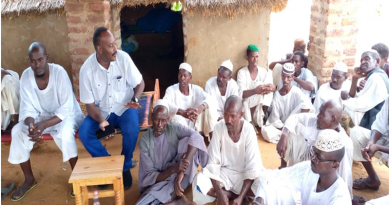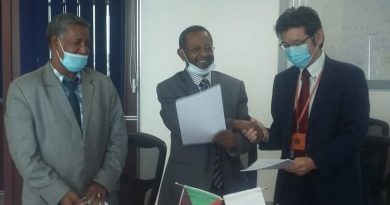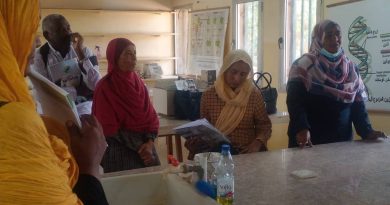Consultation with the private sector on investment opportunities in the green economy
The Acting Secretary-General of the Higher Council for Environment and Natural Resources, Dr Awatef Abdel Qader Bashir request the integration of roles between the government, the private sector and society to preserve the environment and the optimal use and sustainability of natural resources for the benefit of future generations. She refers to the abundance of resources that Sudan contains on the surface and the interior of the earth.
This came during her address to the consultative workshop with the private sector on investment opportunities in the green economy, which was organized by the Environmental Capacity Building Project at the Supreme Council for the Environment at Corinthia Hotel, calling on the private sector to manage resources successfully through effective production systems and trained cadres and transfer the experiences of successful countries.
She also stressed the importance of adhering to regulations and systems, providing information and community services, and pointed to the role of the Coordinating role of the Council in preserving the environment, evaluating environmental impact studies for investment projects and following up, and pledged to provide available assistance to the private sector.
The environmental expert and professor at the University of Pretoria Rashid Makki Hassan reviewed the environmental challenges and problems that Sudan suffers from due to human activities and natural disasters. He lists the opportunities for investment in the environment by finding alternatives to plastic containers, mercury, recycling papers, solid and electronic waste, construction waste, environmentally friendly means of transportation and eco-tourism. He hopes to achieve green growth that improves the standard of life and its quality; in income and well-being with fewer risks to human health and environmental balance. He urges the state and the executive body to set policies, legislation and procedures that encourage investment.
On his part, Dr. Qusay Awad Ahmed from the Faculty of Engineering, University of Khartoum, alerted to adopt sound energy consumption patterns that are not harmful to the environment and the climate, and the transition to clean energy. He referred to international efforts to reduce emissions of industrialized countries and help developing countries in the development process.
Wildlife expert, Dr. Omar Abdullah Suleiman, mentioned the legitimate investment opportunities in the field of wildlife and its contribution to supporting national income, food
security, preserving biodiversity, alleviating poverty and achieving sustainable development goals
While Eng. Yasser Abdullah, Director of Renewable Energies Department at Sudan Electricity Holding Company, discussed investment opportunities in alternative, renewable and environmentally friendly energies by focusing on solar energy and its multiple uses in increasing electricity generation, avoiding cuts and increasing production at a lower cost, calling for the need to develop policies that stimulate the private sector and finance it from banks.
The workshop participants recommended benefiting from the ideas of young people in environmental solutions and urged the competent authorities to expedite the approval of the Electricity Law and called on the private sector to take advantage of the funding opportunities available from donor funds in the field of climate change




